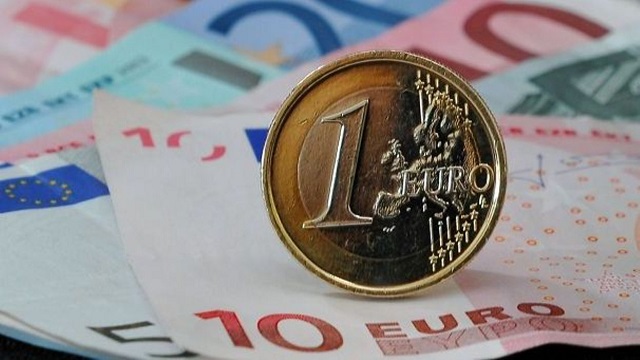
Frankfurt, Germany | Xinhua | The euro, a currency shared by 19 European countries, has won overwhelming support among the 340 million Europeans since it went into circulation 20 years ago.
The idea of a single currency for Europe, which originated in 1970 when policy makers in Europe hoped to achieve an economic equilibrium in the region, was still questioned in 2012 when Europe was caught in a debt crisis.
There is hardly any doubt about the euro, which has emerged as a mainstay at a time when the European Central Bank (ECB) is striving for economic recovery in the euro area plagued by the pandemic.
While the euro enjoys greater appeal as a single currency within the block, it has yet to tap its full potential as an international currency.
SYMBOL OF UNITY
The plan to develop a single currency for Europe dated back to 1989 in a European Communities report. The roadmap for a single currency was laid out in the Maastricht Treaty in 1992. After 10 years of preparation, the first euro banknotes and coins went into circulation in January 2002.
The euro as a currency has brought home people’s desire for cohesion in a region that has witnessed a long history of conflicts.
A total of 11 countries decided to replace their official currencies with the euro in 1999 and later the number has increased to 19.
The adoption of the euro has enabled euro area countries to stabilize prices, lower transaction costs and facilitate cross-border businesses and travel.
The euro has been met with overwhelming enthusiasm. Around 80 percent of citizens regard the euro as good for the European Union (EU), the European Council said in a press release on Friday.
“On a deeper level, the euro is reflective of a common European identity, symbolic of integration as a guarantor for stability and prosperity in Europe,” it said.
The euro has proved to be an important tool in propping up the economies in the euro area amid raging COVID-19 pandemic.
Among other measures, the ECB rolled out in March 2020 a program called Pandemic Emergency Purchase Program, easing the monetary policy stance and stabilizing financial markets.
“For almost 20 years now, euro banknotes have been a tangible symbol of European integration and unity, particularly in times of crisis,” ECB President Christine Lagarde said in December.
After a pandemic-induced recession in 2020, the euro area economy rebounded in 2021, with an increase of 14.4 percent in the second quarter and 3.9 percent in the third quarter.
INT’L POTENTIAL
As a young currency, the euro has grown into an important currency in global trade and financial system. The euro became the second most important currency in the world as soon as it was launched.
The EU has been trying to promote the international appeal of the euro, yet the currency has yet become a dominant currency.
An ECB study released in June found that the global appeal of the euro remained stable at a low level.
According to the report, the euro remained the second most important currency in the international monetary system. Nonetheless, the share of the euro across various indicators of international currency use was close to historical lows, averaging around 19 percent.
The share of the euro in global official holdings of foreign exchange reserves shrank to 21.2 percent in 2020 when measured at constant exchange rates, trailing the U.S. dollar which had a share of around 59 percent.
The share of the euro in the stock of international debt securities remained stable in 2020 at around 23 percent, far below that of the U.S. dollar which stood at 67 percent.
The Brussels-based think tank Bruegel noted in a report released in October 2020 that there is no shortcut for the euro to become a dominant currency. The euro area does not meet the criteria for a dominant currency.
A sticking point is the stability, which means the durability of the single currency and economic and monetary union in the euro area.
The EU should prioritize two issues, namely to boost economic growth and increase the supply of safe assets, if it aims to strengthen the euro’s international status, the report said.
*****
Xinhua
 The Independent Uganda: You get the Truth we Pay the Price
The Independent Uganda: You get the Truth we Pay the Price




They should promote the euro currency worldwide so as to become a very powerful currency.